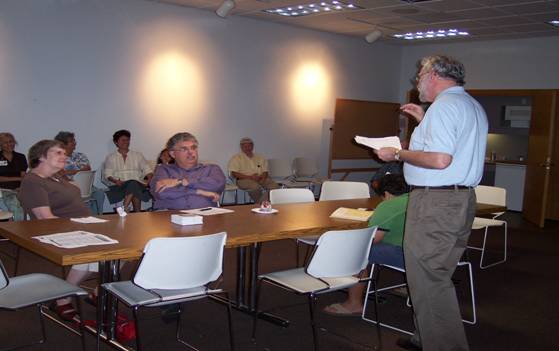Collaboration and Partnerships
Note: EPA no longer updates this information, but it may be useful as a reference or resource.
Collaborative Problem Solving
EPA Region 6 - Dallas - Houston Branch
Geographic location or area of activity: Houston, Texas, primarily the southeast section and zip code 77017.
Description of activity: In 2004, the EPA awarded Mothers for Clean Air (MfCA) a $100,000 Environmental Justice Cooperative Agreement grant to address local environmental and public health issues using a collaborative problem-solving approach. The MfCA project is designed to obtain and understand a Southeast Houston community's perception of environmental health risk and to engage the residents in working with regulators and policy makers to change their environment.
“Improving Environmental Quality through Cooperation,” includes local governments, universities, citizen organizations, elected officials, EPA’s Houston Laboratory personnel and industries working together to reduce exposure of residents to air pollution or at least make them aware of potential exposure. Southeast Houston residents participated in a community-based air-sampling program to identify pollutants of concern and to aid regulatory agencies to enforce the law. The $100,000 grant began this fall and will take three years to complete.
The Houston-Galveston Citizen Air Monitoring Project (HGCAMP), a unique collaboration of government agencies, universities and citizens to complete a regional community air-sampling project that used three different collection devices, was this project’s model. Many of the partners in HGCAMP, including EPA’s Regional Laboratory, will be part of Improving Environmental Quality through Cooperation in Southeast Houston Project.
To implement the project, MfCA, and its collaborating partners, have worked on various projects to inform the residents, involve them in the problem solving and solicit their participation in the air sampling. Some examples are providing technical information on environmental regulations and public meetings, improvement and links to web sites where such information may be obtained, reviewing contingency plans and mechanisms for warnings involving accidental releases and the results of the sample collection in the neighborhood and comparison vis a vis published standards.
Interagency partners US EPA Region 6 Laboratory and Texas Commission on Environmental Quality
Local partners MfCA, University of Texas School of Public Health, Harris County Pollution Control District, City of Houston and a number of local industries.
Activity URL: http://www.mothersforcleanair.org

Dr. Thomas Stock of the University, of Texas School of Public Health Sciences, explaining how to place the monitors.
![[logo] US EPA](../gif/logo_epaseal.gif)